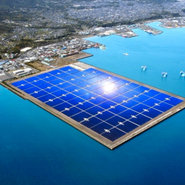Japan puts green growth at heart of economic recovery plan
 The Japanese government has today confirmed it will put green growth at the centre of plans to revive the country’s flagging economy over the next eight years, after formally approving a new growth strategy.
The Japanese government has today confirmed it will put green growth at the centre of plans to revive the country’s flagging economy over the next eight years, after formally approving a new growth strategy.The document, which updates a previous growth plan approved in 2010, sets a goal of delivering three per cent a year nominal economic growth, equating to two per cent a year real growth through to 2020.
In order to deliver on the new growth target, the government is promising an increased focus on fast-growth sectors, including renewable energy, green vehicles, farming and healthcare.
The strategy predicts Japan can create a green energy sector worth 50 trillion yen by 2020, delivering up to 1.4 million new jobs.
It also sets a target of ensuring half of all new cars sold by 2020 are either zero-emission electric or fuel cell vehicles or highly fuel-efficient hybrids, and pledges to secure 50 per cent of the global market for rechargeable batteries by the same year.
The commitment to green growth was broadly welcomed by renewable energy firms, but some commentators accused the government of failing to provide sufficient detail on how it intends to deliver on the new growth plan.
The government recently approved generous new feed-in tariff-style subsidies for renewable energy projects that are expected to drive a surge in green investment.
But the new strategy provides scant detail on how ministers plan to accelerate development of green cars, while the government is still waiting for a committee to report back on whether to fully phase out the use of nuclear power in the wake of the Fukushima crisis.
The committee is currently looking at a series of options for the country’s future energy mix, ranging from reducing the role of nuclear power – from 30 per cent currently to around 25 per cent – through to completely phasing it out.
Economists also warned that if the country is to return to three per cent a year GDP growth, it will have to engineer a means of boosting exports, particularly in high-growth sectors such as clean technologies.
The move comes as anti-nuclear campaigners this week unveiled Japan’s first Green Party, outlining plans to become an official political party by the country’s next election in 2013.
The 1,000-member party said it would offer voters an alternative to the ruling Democratic Party and opposition Liberal Democratic Party, both of which approved the restarting of two nuclear reactors earlier this year and are perceived to be rowing back on initial plans to phase out the use of nuclear power post-Fukushima.
You can return to the main Market News page, or press the Back button on your browser.

